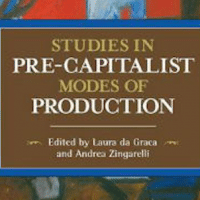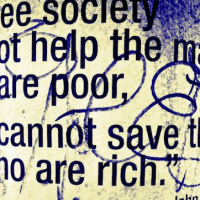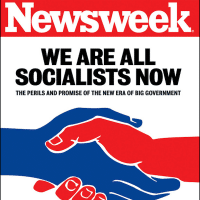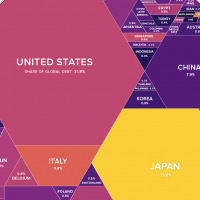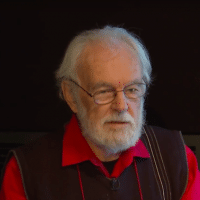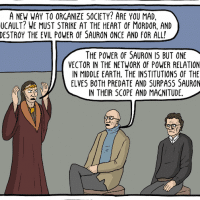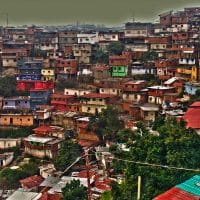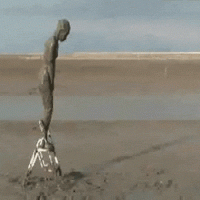-
The progress of this storm
Andreas Malm’s powerful critique of current environmental philosophies puts historical materialism and cutting-edge science at the center of a call for militant action.
-
Studies in pre-capitalist modes of production
Marxism is not simply a form of anti-capitalism, but is a theory of the social and historical nature of humanity. Capitalism was understood by Marx to be a specific historical phase, in which the cycles and tendencies of human activity are qualitatively different than in previous periods, each of which had their own specificity.
-
Mapping social reproduction theory
Let us slightly modify the question “who teaches the teacher?” and ask this of Marxism: If workers’ labor produces all the wealth in society, who then produces the worker? Put another way: What kinds of processes enable the worker to arrive at the doors of her place of work every day so that she can produce the wealth of society?
-
Are intersectionalism or Afro-Pessimism paths to power? (Part 3 of 3)
In parts one and two of this series I’ve talked about the fact that there are two conflicting versions of intersectionality, one employed by some honest to god leftists who reach backward across decades to ventriloquize the term into the mouths of the Cohambee comrades, of Audre Lord, even of Claudia Jones and Sojourner Truth, and how this exists alongside another, hegemonic version of intersectionality deployed by the corporate funded lawyers, media and the nonprofit sector which invented the term in the first place for reasons Cohambee or Claudia Jones would never touch.
-
Neoliberalism’s populist bastards
After the twin victories of Brexit and Trump in 2016, observers across the political spectrum described a face-off between populism and neoliberal globalism. Davos Man, we were told, stood shamed before the wrath of the masses. In a series of electoral defeats for the center and left, the world’s elites were reaping the fruits of the inequality and democratic disempowerment they had sown.
-
Shell ruling is bad for democracy and the planet
TODAY’S ruling that oil giant Shell cannot be pursued in British courts for activities that took place in Nigeria is bad news for poor communities the world over—and for the planet.
-
Utopian socialism
Just nine years ago, in the midst of the Second Great Depression, Newsweek declared that “we are all socialists now.”
-
Not a matter of if, but when
The capitalist crisis will deepen as new bubbles created by easy money begin to burst.
-
Introduction to the material constitution
In a couple of previous posts on Legal Form, Rob Hunter has reminded us of the importance and aptness of a Marxist approach to the analysis of public law. Hunter’s intervention could not be more timely: even after the economic and financial crisis, and despite the comeback of Marxism as a relevant intellectual source at least within certain legal domains (think, for example, of international law) [1], there has not yet been a Marxist revival in constitutional studies. One possible explanation for this phenomenon (though likely not the only one) is the discredit and almost total obliteration of the best-known Marxist contribution to constitutional studies: Lassalle’s notion of the material constitution.
-
Marx for the 21st century with David Harvey
Marx’s ‘Capital’ is one of the most important texts of the modern era and continues to resonate today. Professor David Harvey, the world’s leading expert on Karl Marx, explains the continued importance of Marx’s analysis and how we can apply it to today’s economy and society.
-
The Council of Elrond
Foucault, Chomsky, and Fanon are all radical leftists in one way or another.
-
Utopia and populism
My view is that liberal critics of populism, standing on their heads, get it wrong. If made to stand on their feet, they’d have to admit that populism actually represents the failure of liberal democracy.
-
A farewell to Omelas: remembering Ursula Le Guin
I had a friend who as a child wrote to Ursula Le Guin. He was feeling miserable, bad things had happened to him and he wanted to run away to Earthsea. He told her that he felt ashamed that he wasn’t facing up to life, felt it was a failing that he just wanted to live a fantasy.
-
Bill Fletcher Jr. on Black Marxism
Veteran labor activist Bill Fletcher jr. talks about how capitalism is based on the slave trade and colonialism, the Black contribution to Marxism, and the need to organize.
-
A socialist development strategy for the 21st century (Part 1)
1. Introduction Capitalist development is based upon labour exploitation and environmental destruction. Through sexism and racism it has established second class citizens who are doubly-exploited. Democracy under capitalism is of the ‘low-intensity’ variety—where decision over economic resource generation and use are off-limits to the majority of the population, and where political systems facilitate the (mis)representation […]
-
Marx and historical materialism
Karl Marx was a materialist – more than that, he was a historical materialist. Marxists, in order to establish their credentials in political arguments, frequently claim that they are giving a materialist analysis of a phenomenon. The claim that a materialist analysis is being provided both attests to the Marxist credentials of the argument, and validates the attitudes and actions that follow from that analysis.
-
How should socialists understand finance: remembering the lessons of Capital
For those on the Left, finance seems like a bourgeois pastime. Many of us outright despise the stuff. While the petit bourgeoisie drool over dividends and diversification, we prefer to focus on crisis and class.
-
Value, credit and crisis: Reading Marx out of context can lead to confusion
A literalist, out-of-context reading of Marx can get one into trouble, or at the very least, leave you hopelessly confused. For help, I look to David Harvey. Perhaps the preeminent expert on Marx’s Capital in the English-speaking world, Harvey meticulously reconstructed Marx’s approach to money in his major treatise, Limits to Capital (1982).
-
The shitty new communist futurism
Editors’ note: This is the first in a series of ENTITLE blog articles that critically engage with the ongoing discussions about “eco-modernist socialism” and “communist futurism”, projected in Jacobin magazine’s climate change issue ‘Earth, Wind, and Fire.’
-
The Billionaire boom: 82% of global wealth produced last year went to richest 1%
Forida is a 22-year-old sewing machine operator in a clothing factory in Dahka, Bangladesh. She often works 12-hour days producing clothes for brands such as H&M and Target. Sometimes, during busy production cycles, the hours are even longer.


